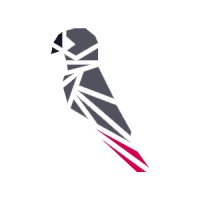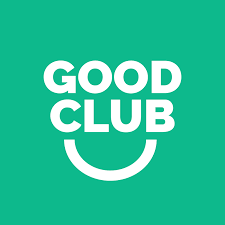The European Green Deal sets out the aim for Europe to reach net-zero by 2050 – which would make Europe the first climate-neutral continent. The European Green Deal also includes the Circular Economy Action Plan. Transitioning Europe towards a circular economy will reduce pressure on natural resources and create sustainable economic growth and jobs.
Europe is a global leader in the circular economy policy. The European government has influenced changes in the law to support a shift to a circular economy with policies like banning single-use plastics, settings targets for reuse and recycling, and obligations for separate collection of textiles and biowaste.
With the ambitions the European government has set out, it makes sense that Europe is the home to a bunch of interesting startups that are helping us move away from a linear economy. They are promoting circularity across various verticals from recycling, product packaging, fashion, groceries, and solutions for families with growing children. Alongside circular economy startups, there are funds focusing on deploying their capital into the circular economy. Amsterdam-based Polestar Capital announced the launch of Europe’s biggest circular economy fund earlier this year. Other funds that are focused on this space in Europe include Edinburgh-based Circularity Capital and New York-based Closed Loop Partners.
Let’s dive into to explore startups that are making strides towards furthering the circular economy in Europe:

Reath: Founded in 2019, Reath is an Edinburgh-based startup working on making reusable packaging more common than single-use. They have collaborated with Innovate UK, the Open Data Institute, and Lancaster University to create the world’s first Open Data Standard for reusable packaging called reuse.id. The easy-to-use platform creates “digital passports” for physical items and tracks items at every stage of their lifecycle. Their technology is set to revolutionise how companies monitor and store data needed for adopting safe, compliant, scalable reusable packaging systems. They have secured commercial partnerships with brand names like M&S and Bower Collective. Last year, the team raised €365K pre-seed investment.
 Sojo: Sojo is on a mission to help make the fashion industry more circular by making clothing repair and tailoring services convenient and mainstream. Their D2C platform connects customers to local seamsters and customers have their items picked up and dropped off by a bicycle courier – customers can get repairs and alterations without leaving their homes. They also have a B2B offering and have partnered with GANNI to offer free tailoring and repairs for their London-based customers. Sojo was founded in 2021 and recently closed its €2.2 million pre-seed funding round. With the funds, Sojo will scale up its team and further develop its B2B proposition.
Sojo: Sojo is on a mission to help make the fashion industry more circular by making clothing repair and tailoring services convenient and mainstream. Their D2C platform connects customers to local seamsters and customers have their items picked up and dropped off by a bicycle courier – customers can get repairs and alterations without leaving their homes. They also have a B2B offering and have partnered with GANNI to offer free tailoring and repairs for their London-based customers. Sojo was founded in 2021 and recently closed its €2.2 million pre-seed funding round. With the funds, Sojo will scale up its team and further develop its B2B proposition.
 Cirplus: Hamburg-based cirplus is the global B2B marketplace for recycled plastics. They are digitising and shortening the transaction process for plastic processors and recycling companies. Founded in 2018, the platform consolidates all aspects of the transaction process including finding, negotiating, contracting, shipping, insurance, and paying for recyclates and plastic waste. Its mission is to lower costs for recyclates over virgin plastics, which supports the shift to a circular economy in plastics. To date, cirplus has raised a total of €3.5 million and currently has 21 employees.
Cirplus: Hamburg-based cirplus is the global B2B marketplace for recycled plastics. They are digitising and shortening the transaction process for plastic processors and recycling companies. Founded in 2018, the platform consolidates all aspects of the transaction process including finding, negotiating, contracting, shipping, insurance, and paying for recyclates and plastic waste. Its mission is to lower costs for recyclates over virgin plastics, which supports the shift to a circular economy in plastics. To date, cirplus has raised a total of €3.5 million and currently has 21 employees.
 Again: Again is on a mission to shift billions of units of packaging from disposable to reusable. The company is building a distributed network of hundreds of autonomous cleaning facilities, called CleanCells. Each facility processes and cleanses packaging for use by the world’s largest FMCG brands. By 2025, they aim to create a world where reuse surpasses single-use on every metric. This would save billions of units of packaging from landfills or incineration. Again is based in London with 7 employees and was founded in 2021.
Again: Again is on a mission to shift billions of units of packaging from disposable to reusable. The company is building a distributed network of hundreds of autonomous cleaning facilities, called CleanCells. Each facility processes and cleanses packaging for use by the world’s largest FMCG brands. By 2025, they aim to create a world where reuse surpasses single-use on every metric. This would save billions of units of packaging from landfills or incineration. Again is based in London with 7 employees and was founded in 2021.
 Greyparrot: Greyparrot is an analytics platform for the circular economy. Greyparrot leverages computer vision technology to monitor, analyse, and sort tonnes of waste at scale. Poor packaging design and ineffective recycling sorting mean that most of what goes into recycling bins ends up in landfills. Greyparrot is bringing transparency and automation into an inefficient system. Their technology has analysed over 10 billion packaging items in sorting plants to increase recycling rates and introduce accountability to the waste value chain. Providing data on waste can impact government policies on recycling and packaging data. Greyparrot was founded in 2019 and recently raised its €10.2 million Series A.
Greyparrot: Greyparrot is an analytics platform for the circular economy. Greyparrot leverages computer vision technology to monitor, analyse, and sort tonnes of waste at scale. Poor packaging design and ineffective recycling sorting mean that most of what goes into recycling bins ends up in landfills. Greyparrot is bringing transparency and automation into an inefficient system. Their technology has analysed over 10 billion packaging items in sorting plants to increase recycling rates and introduce accountability to the waste value chain. Providing data on waste can impact government policies on recycling and packaging data. Greyparrot was founded in 2019 and recently raised its €10.2 million Series A.
 Bike Club: Bike Club offers subscriptions for kids’ bikes that can be exchanged as children grow up. Children grow fast and getting a new bike each time, a child grows out of their current one is a pain nor is it affordable. The company, founded in 2016, is the only FCA (the financial services regulator in the UK) regulated hire-exchange platform. Bike Club recently closed their Series B with a €19.5 million raise. With the funds, they are pedalling towards expanding across the UK and Europe.
Bike Club: Bike Club offers subscriptions for kids’ bikes that can be exchanged as children grow up. Children grow fast and getting a new bike each time, a child grows out of their current one is a pain nor is it affordable. The company, founded in 2016, is the only FCA (the financial services regulator in the UK) regulated hire-exchange platform. Bike Club recently closed their Series B with a €19.5 million raise. With the funds, they are pedalling towards expanding across the UK and Europe.
 Fairown: Fairown is on a mission to empower more brands to shift from a linear to a circular economy. They enable environmentally conscious businesses to offer their products for monthly subscriptions and ensure a smooth product renewal cycle by collecting and utilising old products. Before going out to fundraise, the company bootstrapped to profitability, €1.2 million in revenue, and expanded across eight countries. Fairown is based in Tallinn, was founded in 2018, and has raised about €4.2 million to date.
Fairown: Fairown is on a mission to empower more brands to shift from a linear to a circular economy. They enable environmentally conscious businesses to offer their products for monthly subscriptions and ensure a smooth product renewal cycle by collecting and utilising old products. Before going out to fundraise, the company bootstrapped to profitability, €1.2 million in revenue, and expanded across eight countries. Fairown is based in Tallinn, was founded in 2018, and has raised about €4.2 million to date.

Twig: Founded in 2021, Twig calls themselves the “bank of things” and is giving things that consumers no longer want a new life. They are empowering consumers to unlock value and wealth that they didn’t know that they had. Consumers can upload their items in less than 30 seconds, receive a valuation, and get an instant offer to cash out their things. Twig is based in London, currently has 81 employees, and has raised a total of €38.7 million.
 Vinterior: Vinterior is the leading marketplace for curated vintage furniture and home accessories. Consumers are increasingly looking for unique, stylish, and sustainable furniture. Because the furniture market remains mostly fragmented, consumers’ options are to settle for “fast furniture”, expensive design stores, or spend time scavenging through vintage stores. Vinterior was founded in 2016 with 12 London dealers and 200 mid-century furniture pieces. Since its launch, they have grown to a community of 1,800 vintage sellers across Europe. They are based in London with 60 employees. Vinterior recently raised a €9.3 million Series A round, with the funds they are accelerating growth and expansion into new markets.
Vinterior: Vinterior is the leading marketplace for curated vintage furniture and home accessories. Consumers are increasingly looking for unique, stylish, and sustainable furniture. Because the furniture market remains mostly fragmented, consumers’ options are to settle for “fast furniture”, expensive design stores, or spend time scavenging through vintage stores. Vinterior was founded in 2016 with 12 London dealers and 200 mid-century furniture pieces. Since its launch, they have grown to a community of 1,800 vintage sellers across Europe. They are based in London with 60 employees. Vinterior recently raised a €9.3 million Series A round, with the funds they are accelerating growth and expansion into new markets.
 Good Club: Born in 2019, Good Club is making zero-waste shopping simpler. They deliver customers a range of groceries in reusable, plastic-free packaging with carbon-neutral doorstep delivery. They are currently delivering groceries to customers across the UK. To date, they have raised €5.05 million. Good Club has been working to grow their range of products in response to customer demand. They recently announced a partnership with Müller Group’s Milk & More doorstep delivery service.
Good Club: Born in 2019, Good Club is making zero-waste shopping simpler. They deliver customers a range of groceries in reusable, plastic-free packaging with carbon-neutral doorstep delivery. They are currently delivering groceries to customers across the UK. To date, they have raised €5.05 million. Good Club has been working to grow their range of products in response to customer demand. They recently announced a partnership with Müller Group’s Milk & More doorstep delivery service.
By the way: If you’re a corporate or investor looking for exciting startups in a specific market for a potential investment or acquisition, check out our Startup Sourcing Service!




